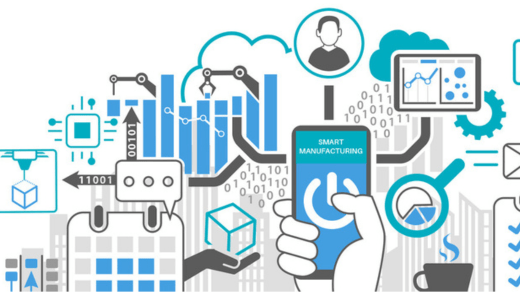“Revolutionizing Education with EdTech Software” is a significant and transformative topic, as technology-driven educational solutions have the potential to reshape how we learn and teach. Here are 15 key points about the use of educational technology (EdTech) software in education, along with their respective pros and cons:
Revolutionizing Education with EdTech Software:
- Personalized Learning: EdTech software can adapt to individual learning needs.
- Pros: Improved engagement, customized learning paths, and better outcomes.
- Cons: Data privacy concerns, potential misuse of personal information.
- Online Learning Platforms: EdTech platforms facilitate remote and flexible learning.
- Pros: Access to a wide range of courses, increased accessibility, and cost-effectiveness.
- Cons: Technical challenges, limited face-to-face interaction, and isolation.
- Interactive Content: EdTech offers interactive and multimedia-rich learning materials.
- Pros: Enhanced comprehension, engagement, and varied content formats.
- Cons: Overuse of multimedia, distractions, and accessibility issues.
- Teacher Support: EdTech can aid educators in delivering more effective instruction.
- Pros: Improved teaching resources, assessment tools, and data-driven insights.
- Cons: Resistance to technology, teacher training needs, and potential job displacement.
- Global Learning Communities: EdTech connects students and educators globally.
- Pros: Diverse perspectives, collaboration opportunities, and cross-cultural understanding.
- Cons: Language barriers, different time zones, and the need for digital literacy.
- Gamification: Gamified learning through EdTech can make education more engaging.
- Pros: Increased motivation, problem-solving skills, and progress tracking.
- Cons: Potential addiction, superficial learning, and excessive competition.
- Accessibility: EdTech can provide inclusive learning experiences for individuals with disabilities.
- Pros: Equal access to education, personalized support, and assistive technologies.
- Cons: Limited awareness, technical challenges, and design limitations.
- Data-Driven Insights: EdTech software collects and analyzes student performance data.
- Pros: Tailored interventions, early warning systems, and evidence-based decision-making.
- Cons: Data privacy concerns, potential misuse, and overreliance on data.
- Remote Assessments: EdTech enables remote and automated assessments.
- Pros: Time-efficient evaluations, reduced administrative burden, and scalability.
- Cons: Cheating risks, technical issues, and limited exam security.
- Continuous Learning: EdTech supports lifelong learning and professional development.
- Pros: Skill acquisition, career advancement, and adaptability to changing industries.
- Cons: Information overload, difficulty in staying motivated, and potential isolation.
- Digital Literacy: EdTech encourages the development of digital skills.
- Pros: Enhanced employability, preparation for the digital workforce, and access to information.
- Cons: Technology dependence, information overload, and cybersecurity risks.
- AI-Powered Tutoring: AI-driven EdTech provides personalized tutoring and assistance.
- Pros: Targeted support, enhanced learning outcomes, and cost-effective tutoring.
- Cons: Privacy concerns, potential job displacement, and dependence on technology.
- Parental Involvement: EdTech can improve communication between schools and parents.
- Pros: Better engagement, understanding of student progress, and support for learning.
- Cons: Data privacy concerns, technical barriers, and overreliance on technology.
- Environmental Impact: EdTech reduces the need for physical resources and commutes.
- Pros: Reduced carbon footprint, cost savings, and sustainability.
- Cons: Technological waste, energy consumption, and the digital divide.
- Teacher Professional Development: EdTech supports educators in upgrading their skills.
- Pros: Access to training resources, flexibility, and staying current with trends.
- Cons: Resistance to change, potential for overwhelm, and resource allocation.
Pros and Cons of EdTech Software in Education:
Pros:
- Personalized Learning: EdTech offers tailored learning experiences.
- Access to a Wide Range of Courses: Online learning platforms provide access to diverse subjects.
- Interactive Content: Multimedia-rich materials enhance comprehension.
- Teacher Support: EdTech aids educators in effective instruction.
- Global Learning Communities: EdTech fosters cross-cultural interactions.
- Gamification: Gamified learning motivates students.
- Accessibility: EdTech ensures inclusive education.
- Data-Driven Insights: Data analysis informs targeted interventions.
- Remote Assessments: EdTech simplifies evaluations.
- Continuous Learning: EdTech supports lifelong education.
- Digital Literacy: EdTech encourages digital skills development.
- AI-Powered Tutoring: AI provides personalized assistance.
- Parental Involvement: EdTech improves communication with parents.
- Environmental Impact: EdTech reduces resource consumption.
- Teacher Professional Development: EdTech supports educators’ growth.
Cons:
- Privacy Concerns: Data privacy is a major concern in EdTech.
- Technical Challenges: Online platforms can present technical difficulties.
- Limited Face-to-Face Interaction: EdTech may reduce in-person contact.
- Teacher Training Needs: Educators may require training in EdTech use.
- Language Barriers: Global learning may face language challenges.
- Potential Addiction: Gamification can lead to overuse.
- Information Overload: Digital literacy may lead to information overload.
- Cheating Risks: Remote assessments can be susceptible to cheating.
- Motivational Challenges: Continuous learning may require high motivation.
- Technology Dependence: Digital literacy may lead to technology dependence.
- Privacy Concerns: AI-driven tutoring raises privacy concerns.
- Data Privacy Concerns: Parental involvement may pose privacy issues.
- Technological Waste: EdTech may generate electronic waste.
- Resistance to Change: Teacher professional development faces resistance.
- The Digital Divide: Not all students have access to EdTech.
EdTech software has the potential to transform education by making it more accessible, personalized, and efficient. However, ethical concerns about data privacy, technical challenges, and potential drawbacks, such as reduced face-to-face interaction, must be addressed to ensure its responsible and effective use.

